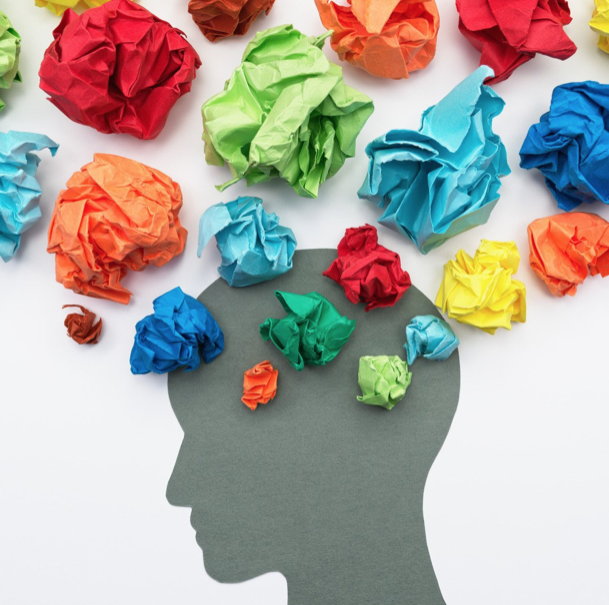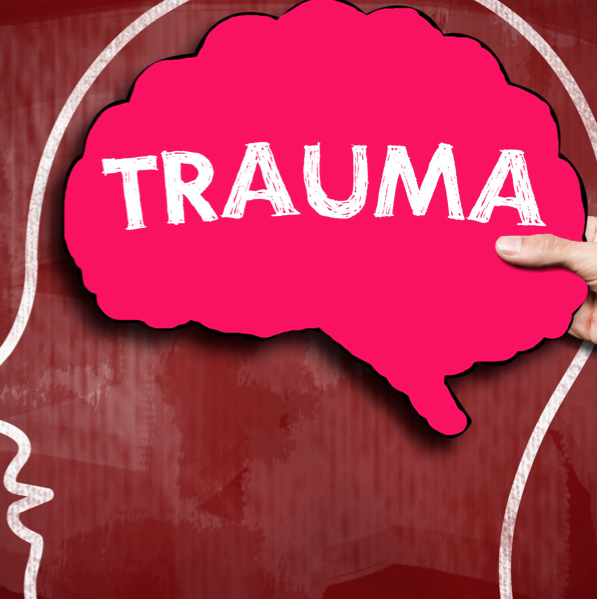- Fast results
- 4,000+ locations
- 4.8 star rating
Need Help? (888) GET LABS


This article is Medically Approved ✓ by Dr. Edward Salko

When the subject of mental health comes to mind, the brain is the first organ you can associate with it.
Although it is no doubt that irregular brain activities are linked to different mood and mental disorders, the complexity of how these conditions are formed goes beyond one organ.
Nevertheless, the malfunctions in these interconnected organs can be detected by the imbalances in the hormones.
You may know hormones as the chemical messengers of the body, telling organs and tissues what to do and how to function in certain situations.
However, they play critical roles, especially in keeping your mental health in a good state.

The endocrine system, which is responsible for producing and releasing hormones, works side by side with the nervous system to keep the body at its optimum state.
Hormones act as chemical messengers delivering instructions from the brain. Hence, if hormones are produced in excessive amounts, the communication between the central nervous system and the rest of the organs can be disrupted.
This brings us to its role in keeping your mental wellbeing.
If there is a hormonal imbalance, other body functions are affected, such as metabolism, mood, immunity, sexual functions, reproduction, and the production of other essential chemicals in the body.
The brain’s neurotransmitters which are responsible for regulating mood and emotions are also affected, triggering anxiety and depression.
Hormones are critical to maintaining homeostasis or balance in the body.
Therefore, insufficient, or excessive release of hormones, also known as hormonal imbalance, can disrupt how organs function and coordinate with the entire physiological system.
Here are some of the known causes of hormonal imbalance you should watch out for.

Whenever you are facing a stressful situation, stress hormones are released into your bloodstream. These hormones are part of the “fight or flight” response your brain activates. Unfortunately, stress is often translated into danger.
That’s why it is common for you to experience increased heart rate, sweating, energy rush, etc., when you are about to do a presentation, speak in public, or deal with demanding customers.
But these conditions are meant to be temporary. Think of it as an emergency lever you only have to pull when absolutely necessary. But when you’re under constant pressure, stress, and anxiety, this lever gets pulled almost all the time.
The constant presence of stress hormones in your blood can be detrimental. It requires several organs to work twice as hard, which is very demanding.
Furthermore, the release of hormones like adrenaline suspends the normal production of other critical hormones and neurotransmitters, which leads to hormonal imbalance.

Traumatic events or injuries can leave a lasting impact on your mental and physical health. This is one of the reasons why unprocessed childhood traumas can affect your overall well being.
In a physiological sense, trauma triggers the central stress response system of the body called the hypothalamic-pituitary-adrenal (HPA) axis.
The memory of the traumatic event repeatedly triggers HPA making it more sensitive than normal. Hence, stress hormones are often released in the bloodstream.

If you’re not under constant stress, you may wonder if you’re still susceptible to hormonal imbalance. Unfortunately, yes, you can be – that is, if you have thyroid disorders.
The thyroid gland sits at the front of the neck. It has multiple functions, including regulating metabolism and the development of several vital organs. It also releases hormones that affect other physiological processes.
Once the thyroid produces less or more of these hormones, it triggers a domino effect for the rest of the endocrine system. This leads to exacerbated hormonal imbalance that may result in mood disorders.

Drugs can have a critical impact on the endocrine system. One example is antiepileptic medications.
The mechanism of drug-based treatment can cause several abnormalities, including hormonal imbalances, as it can impose changes in the production of specific hormones.
While in most cases, these effects are regarded as negligible, there are instances wherein the medication needs to be halted to prevent harm to the patient’s mental status.
This is why drug monitoring via blood tests and other procedures is essential in the treatment process.

The root cause of eating disorders is complex as it could be an interplay between biological, psychological, social, and other external factors.
What is true, however, is that it can lead to hormone imbalances.
First, eating disorders such as anorexia and bulimia deprive the body of the sufficient and essential nutrients required for hormone production.
Anorexia, for example, interrupts the production of growth hormones, especially among adolescents.
Second, the delirious effects of hunger trigger anxiety and depression that stem out from the constant activation of the stress response system. In turn, it pulls drastic actions to flood the bloodstream with stress hormones.
Although every other hormone impacts your brain functions, some affect your mental health relatively stronger than others.
Check out the following hormones and how abnormal production of each can impact your mental health.
Patients diagnosed with thyroid problems have been found out to have increased risks for depression and other mood disorders. The link has been established explicitly through imbalances in the thyroid hormones.
Here are known thyroid hormone abnormalities linked to mental illnesses.
Hypothyroidism, a condition characterized by decreased production of thyroid hormones, is closely associated with depression.
In a 2019 study published in the Journal of Family Medicine and Primary Care, the prevalence of depression in varying degrees has been observed in patients with hypothyroidism.
Therefore, it is recommended to secure a Thyroid Health Profile Blood Test for those diagnosed or suspected of having depression and anxiety disorders.
In the same way, patients who have thyroid problems opt to undergo a depression screening as well.
The role of the stress hormones has been established as a critical player in developing mood disorders. This hormone is also called cortisol.
Cortisol is often referred to as the body’s alarm system. You can think of it as the emergency lever pulled in cases of danger. Simply put, it’s the body’s primary stress hormone.
Once cortisol is released in the bloodstream, glucose metabolism is hastened to produce more energy for the “fight or flight” response to stress.
The constant release of cortisol flooding the bloodstream changes the dynamic of neurotransmitters like serotonin, also dubbed as the happy hormone (although it is technically not a hormone).
For people who have clinical depression, serotonin is at its low levels, which explains the intense feeling of sadness.
Insulin is directly associated with type 2 diabetes. After all, it is the hormone responsible for lowering the glucose or sugar in the blood.
Those with type 2 diabetes either lack sufficient insulin to process glucose or cannot process the insulin produced by the pancreas.
However, this condition does not only lead to the said metabolic abnormality.
In a 2017 study, evidence supported how patients who were insulin resistant had higher risks for depressive symptoms.
Additionally, the effect is bidirectional, which means that those diagnosed with clinical depression also have a higher susceptibility for type 2 diabetes.
According to research, women are two to three times more likely to get depressed than men. This data has been associated with the production of female sex hormones estrogen and progesterone.
The ovaries produce both hormones. As a result, they play essential roles in female reproduction, particularly in regulating the menstrual cycle.
The ovaries release estrogen. It is responsible for the development of female secondary sexual characteristics.
However, estrogen also helps blood clotting, stress response, emotional regulation, and other brain activities. This explains why women experience mood swings during their menstrual cycle.
With men, research has shown that increased estradiol, one form of estrogen, can be linked to increased depressive symptoms even outside their body mass index.
These data suggest that estrogen imbalance can trigger the development of mental illnesses like depression.
Along with estrogen, progesterone is also associated with mental health. It regulates ovulation or the release of the egg cell in the fallopian tube. It also plays a key role during implantation and pregnancy.
In the second half of a woman’s menstrual cycle, progesterone will gradually drop. This shift leads to irritability, fatigue, mood swings, anxiety, and other symptoms of premenstrual syndrome.
The fluctuations of both progesterone and estrogen are more notable during menopause and even perimenopause.
As a result of these hormonal imbalances, women feel even more irritable and uncomfortable as symptoms like hot flashes, night sweats, etc., arise.
Hence getting tested for estrogen and progesterone can be instrumental to a smooth menopausal experience.
Nevertheless, the dysregulation of these ovarian hormones impacts mood sensitivity and emotional responses.
Testosterone is best known as the male sex hormone responsible for the development of male secondary sexual characteristics. It is also essential for sperm production.
However, testosterone also affects cognition and neurobehavioral functions like arousal and aggression. Hence, experts looked into how changes in testosterone levels affect mental health.
Although the relationship between the hormone and the development of mood disorders still needs further research, there is data supporting how testosterone treatment can lessen depressive symptoms among men.
The overwhelming evidence suggests that hormonal imbalances and fluctuations can affect mental health.
As a result, screening and monitoring for the hormones, as mentioned earlier, can be instrumental in preventing mood disorders from developing or escalating.
Whether you are susceptible to depressive symptoms or not, taking the appropriate blood tests on hormonal levels like the Comprehensive Male Hormone Profile Blood Test and the Comprehensive Female Hormone Blood Test will benefit your overall health.
Your mental health is as important as your physical health.
Consult your doctor if you have behavioral and physiological symptoms for any mood disorder. That way, you can get the correct diagnosis as early and as accurately as possible.

© Copyright 2025 Personalabs. All Rights Reserved.